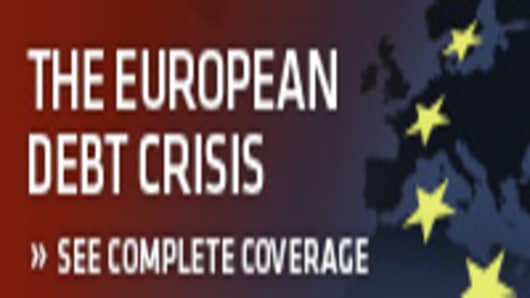There has been little love by financial markets for European leaders these days. But one has to wonder about the level of disdain reflected in recent surveys of City of London economists and global investors showing agreement about the likelihood of a breakup of the euro-zone.
How can a majority of 25 City of London economists conclude that “a euro break-up of greater or lesser proportions during the next Parliamentary term” – within five years , in other words – is likely?
Not according to the economic and political facts, it would seem.
A currency union in Europe was always destined to suffer problems. Because it lacks a fiscal as well as monetary component, the euro zone does not possess a central mechanism to overcome future geographically concentrated “asymmetric shocks,” in which some countries suffer downturns and need fiscal help while other countries do not.
Without adequate labor mobility across member state borders (or often even within them), the European institutional framework is further hampered because workers cannot move in search of jobs because of language and other barriers. These handicaps rob the euro zone of several basic tenets of an “optimal currency area” (OCA).
Despite these problems, however, it is worth remembering that OCA theory predicted in the first place that the euro would never happen. The same theory suggests that the euro is now bound to fail. Such predictions, though, are overwrought. Just because something doesn’t operate optimally in an economic sense, does not mean that it will fail once in existence.
In reality, there is next to no chance that the euro-zone will break up as a result of the current economic crisis in Europe, or as a result of a probable Greek sovereign default. There are several reasons why.
First, leaving the euro would impose a catastrophic cost on any nation that tries to do so out of economic weakness. Even euro-zone countries that default on their debts would be far better off inside the euro-zone than outside (crucially, euro-zone members cannot be kicked out), because in the longer-term they would still have access to the deep liquid euro-zone financial markets.
Any euro-denominated interest rate imposed by financial markets even after a default would be a lot lower than interest rates on, say, new drachma-denominated bonds.
Moreover, under the Lisbon Treaty (which will not be revised in even the medium term) leaving the euro zone cannot be done without quitting the EU entirely. Such a move would entail a nearly complete regional political isolation and probably exposure to the EU’s external trade barriers as well.
It is important to note that ditching a physical currency that remains the legal tender in other countries is very different from simply breaking a currency peg, as Argentina did in 2001. As the introduction of euro notes and coins showed in 2002, a new physical currency would entail a lengthy logistical operation.
A process of many months of emptying and refilling ATMs etc. can hardly be kept secret. While the mechanics are undertaken, a country wishing to leave the euro and reintroduce a new, weaker national currency, would experience a devastating capital flight, as private residents transfer their money out of the country.
It can be argued that quitting the euro after a sovereign default resulting from a collapse of the domestic banking system would not add that much more economic chaos to the mix; that view ignores several issues.
There is a lot more to an economy than the banking system, for one thing. Leaving the euro for a weaker currency would essentially cast private contracts denominated in euros into default, or facing rapidly rising liabilities through a depreciating “new drachma”.
In addition, countries that seek to reintroduce a new national currency must have reasonable expectations of large export gains from a competitive devaluation. In the case of Greece and most other Mediterranean euro-zone members (with Italy as the partial exception), large export gains from even a large competitive devaluation look very unlikely.
Greece, with a total “goods export intensity” worth just seven percent of GDP in 2008, is by far the least goods export oriented country in the euro-zone. The country fundamentally makes too little that the rest of the world wants to benefit much from the short-term pricing advantages of reintroducing its own currency.
Moreover, Greece’s two large services sector export articles – tourism and shipping – would find it difficult to gain from depreciation. Tourism is highly sensitive to social unrest, which is all but guaranteed with the introduction of a “new drachma.”
Shipping is conducted almost wholly in US dollars for both revenues and costs, and is thus unlikely to benefit much from a competitive Greek devaluation. The economic gains for Greece associated with leaving the euro-zone thus are like the Sirens – seductive, but mythical and dangerous.
What if a strong country like Germany were to leave the euro-zone? Similar misconceptions exist about the willingness and possibility of such a move. Despite some talk about this prospect in Europe, the case for a German departure from the euro-zone is simply non-existent.
It is politically unthinkable that Germany would undermine 60 years of pro-European policies by leaving the euro-zone and thereby destroying the entire EU that has anchored its identity and powered its postwar authority.


